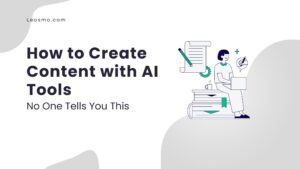Artificial Intelligence (AI) and cloud computing are revolutionizing the tech world. Integrating these two powerful technologies offers businesses unmatched scalability, cost efficiency, and innovation potential.
Whether you’re running a startup or managing a multinational corporation, understanding how AI and cloud platforms work together can give your organization a significant edge.
This guide explores the benefits, challenges, best practices, and real-world applications of integrating AI with cloud platforms.
The Benefits of Integrating AI with Cloud Platforms

Combining AI with cloud platforms creates numerous opportunities for businesses. Let’s delve into some of the key advantages:
1. Scalability
- Cloud platforms enable organizations to scale AI applications seamlessly.
- Easily accommodate fluctuating workloads without significant capital investments.
2. Cost Efficiency
- The pay-as-you-go model eliminates the need for costly infrastructure.
- Allows businesses to allocate resources efficiently, reducing operational expenses.
3. Enhanced Collaboration
- Cloud platforms provide centralized access to data and AI tools.
- Teams across the globe can collaborate effortlessly, sharing insights and models.
4. Faster Deployment
- Cloud platforms offer pre-built AI services, speeding up implementation.
- Developers can focus on innovation rather than infrastructure.
5. Democratized Access
- Small and medium-sized businesses (SMBs) can access cutting-edge AI tools without huge budgets.
- Levels the playing field in competitive markets.
Challenges in AI-Cloud Integration
While the benefits are substantial, integrating AI with cloud platforms comes with its challenges. Here are the most common ones:
1. Data Privacy and Security
- Sensitive data stored in the cloud can be vulnerable to breaches.
- Organizations must comply with data protection regulations such as GDPR or CCPA.
2. Latency Issues
- Real-time AI applications may experience delays due to data transfer between cloud servers and user devices.
- This is especially critical for applications like autonomous vehicles or financial trading.
3. Integration Complexity
- Existing IT systems may not be fully compatible with cloud-based AI solutions.
- Requires careful planning and skilled personnel to integrate successfully.
4. High Costs for Large-Scale AI Models
- Training and deploying large-scale AI models like GPT-4 require significant computational resources.
- Organizations must optimize resource usage to manage expenses.
Read more: 7 AI Tools For Make Money in 2025
Best Practices for AI-Cloud Integration
To overcome challenges and make the most of AI-cloud integration, follow these best practices:
1. Assess Your Business Needs
- Identify the specific problems you want AI to solve.
- Align AI-cloud initiatives with your organizational goals.
2. Choose the Right Cloud Provider
- Evaluate cloud providers based on their AI services, compliance standards, and scalability.
- Popular choices include AWS, Microsoft Azure, and Google Cloud.
3. Ensure Data Quality
- High-quality, structured data is essential for accurate AI results.
- Implement robust data governance frameworks.
4. Prioritize Security
- Use encryption, firewalls, and multi-factor authentication to protect data.
- Conduct regular security audits to identify vulnerabilities.
5. Invest in Training and Upskilling
- Equip your team with the knowledge to manage and optimize AI-cloud integrations.
- Offer regular training on cloud platforms and AI technologies.
6. Plan for Scalability
- Design your AI applications with future growth in mind.
- Use scalable cloud solutions to handle increased data and workloads.
Read more: Playphrase.me AI Review: Review, Pricing, And Use Case
Real-World Applications of AI-Cloud Integration
1. Healthcare
- Hospitals use cloud-based AI to analyze patient data for better diagnoses.
- AI-powered tools help personalize treatment plans and predict patient outcomes.
2. Financial Services
- Banks leverage AI to detect fraudulent transactions in real time.
- Cloud platforms enable the deployment of advanced risk assessment models.
3. Retail
- Retailers use AI for demand forecasting and inventory management.
- Cloud integration supports seamless customer personalization.
4. Manufacturing
- AI-powered predictive maintenance minimizes equipment downtime.
- Cloud platforms facilitate real-time monitoring of manufacturing processes.
Read more: How to Create Content with AI Tools: No One Tells You This
Emerging Trends in AI-Cloud Integration
1. Edge AI
- Processing data closer to its source reduces latency.
- Ideal for IoT devices and real-time analytics.
2. AI-as-a-Service (AIaaS)
- Businesses can access pre-built AI models through cloud platforms.
- Reduces the need for in-house development and expertise.
3. Enhanced Security Protocols
- Innovations in encryption and secure multi-party computation are making AI-cloud integrations safer.
4. Green AI
- Optimizing AI models to reduce energy consumption aligns with sustainability goals.
Read more: Create Amazing Images with Microsoft Bing AI Image Creator
Conclusion
Integrating AI with cloud platforms is more than just a technological advancement; it’s a strategic necessity for businesses aiming to stay competitive.
By understanding the benefits, addressing the challenges, and implementing best practices, organizations can unlock the full potential of AI and cloud computing. As these technologies continue to evolve, the possibilities for innovation and efficiency are limitless.




